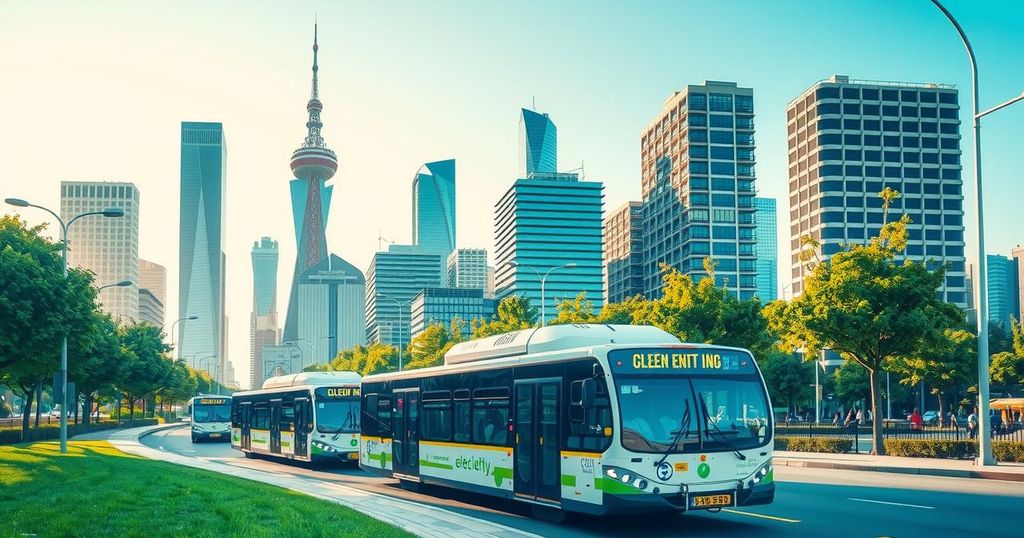Cars
ASIA, AUTOMOTIVE INDUSTRY, BANK OF CHINA LTD, BRAZIL, BYD, BYD CO, BYD CO. LTD, CAIXIN, CHINA, FOREIGN INVESTMENT, HANGZHOU HIKVISION TECHNOLOGY CO, HANGZHOU HIKVISION TECHNOLOGY CO. LTD, HIKVISION, INDUSTRY, LTD, MEXICO, NORTH AMERICA, NUNES, RICARDO NUNES, ROBOTICS, SAO PAULO, SOUTH AMERICA, TRADE, U. S, UNITED STATES, WASHINGTON, ZHEJIANG DAHUA TECHNOLOGY CO
Oliver Grayson
0 Comments
Brazil’s São Paulo Seizes Trade Opportunities Amid U.S.-China Tensions
Trade tensions between the U.S. and China have opened avenues for Brazil, especially São Paulo, to establish strong partnerships with China in clean energy, public transit, and urban development. Mayor Ricardo Nunes discussed plans for electrifying the bus fleet by 2032 and boosting surveillance through AI technology on the sidelines of an economic summit in Shanghai.
Ricardo Nunes, the mayor of São Paulo, emphasized that the ongoing trade tensions between the United States and China are presenting significant opportunities for Brazil. In a discussion during a key economic summit in Shanghai, Nunes pointed out that the resulting tariff disputes have created openings in the global market that Brazil is eager to exploit, primarily in clean energy, public transportation, and urban development sectors.
Nunes highlighted São Paulo’s ambitious plan to electrify its entire bus fleet by 2032, a move that includes collaboration with BYD, a prominent Chinese electric vehicle manufacturer. He also mentioned the city’s intent to secure approximately 100 million yuan—or about $14 million—from the Bank of China to support this electrification initiative.
In addition, São Paulo has significantly enhanced its surveillance capabilities by installing over 25,000 AI-powered cameras from Chinese companies, like Hangzhou Hikvision and Zhejiang Dahua. These cameras, integrated with Brazil’s national criminal database, have been instrumental in apprehending over 1,000 fugitives within just six months, showcasing the efficacy of these technologies in improving public safety.
In conclusion, São Paulo’s mayor Ricardo Nunes believes that the trade friction between the U.S. and China is not merely a challenge but a chance for Brazil, particularly in sectors like clean energy and urban development. By electrifying its bus fleet and expanding its surveillance systems, the city aims to forge stronger ties with China, ensuring its position in the evolving global trade landscape. São Paulo’s proactive measures reflect a strategic response to the current economic climate, aiming for progressive urban transformation.
Original Source: www.caixinglobal.com




Post Comment